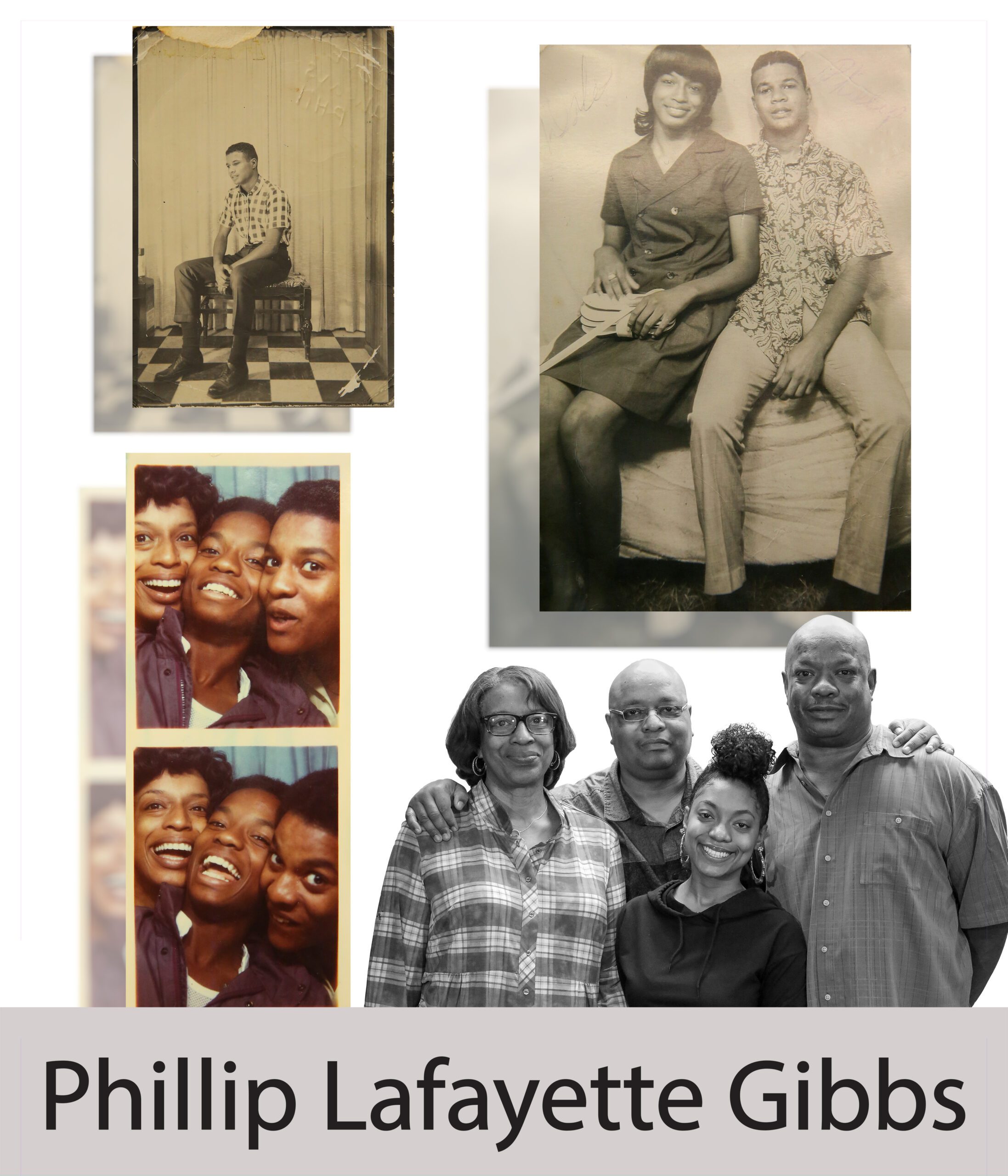
Tragedy and Triumph: The Lives of the Gibbs-Green Survivors
Phillip Lafayette Gibbs and his family relocated to the small town of Ripley, Mississippi, from Milwaukee, after his mother’s death in 1962. Phillip’s eldest sister took on the responsibility of raising the ambitious teenager, who was fascinated with Greek Mythology, along with his two siblings.
Phillip Gibbs and Dale Adams met at Line Street High School in Ripley, and the young couple married in a quaint ceremony at his sister’s home in 1968. The reality of becoming a husband and, soon after, a father pushed Phillip toward a college education. With dreams of becoming an attorney, Phillip Gibbs enrolled at then Jackson State College, where he was majoring in political science.
Listen to Dale Gibbs describe her experiences as part of the JSU Legacy Project.
The distance between Ripley and Jackson did not keep the newlyweds from spending time together on the weekends, and Phillip made the 3.5 hour drive regularly. Committed to his family, Phillip worked diligently to balance his responsibilities as a college student, husband, and father to his young son, Phillip, Jr.
Although Dale married Phillip at the age of seventeen, she found herself a widow at nineteen. Tragedy struck when city police and state highway patrolmen killed Phillip, along with James Green, a local high school student, on the Jackson State campus on May 14, 1970. In a barrage of bullets, a dozen others were shot, and scores were injured physically and psychologically.
Phillip’s death left Dale Gibbs alone to raise their two sons, one of whom Phillip never knew. Unbeknownst to her at the time of Phillip’s death, Dale was pregnant with their second son, Demetrius. With a grieving heart in 1982, Dale left Mississippi to raise her family and eventually settled in Arizona. Working as an underwriter for an insurance company, Dale has devoted 31 years to her career.
The Gibbs and Green families, along with other survivors, filed a lawsuit against the City of the Jackson and the State of Mississippi in February 1972. After ten years of litigation and represented by civil rights attorney Constance Slaughter-Harvey, the plaintiffs lost their lawsuits and never received any compensation for the tragedy.
The legacy of Phillip Gibbs lives on through his two sons Phillip Lafayette Gibbs, Jr., Demetrius Durand Gibbs, and granddaughter Cierra Gibbs. Phillip, Jr., graduated from the University of Arizona and works for a financial institution. He has one child, Cierra Gibbs, who, as an adult, has come to have a deep appreciation for her grandparents and what her grandmother in particular lived through. With a tremendous amount of love and respect for his family in Mississippi, Phillip, Jr., returns home whenever he can.
After attending junior college, Demetrius Gibbs decided to transfer to Jackson State University, where he was welcomed by the now late Dr. Gene “Jughead” Young, a long-time proponent of the legacy of the Gibbs-Green tragedy. Demetrius graduated from JSU with a bachelor’s degree in finance in 1995, and he continues to return to his alma mater, especially during homecoming.
Demetrius wants people to remember his father as someone who was trying to be a better man for the African American community by pursuing his education. He believes his father set an example by showing Black men that they did not have to fall into sharecropping or be confined to factory work.
 Skip to main content
Skip to main content
